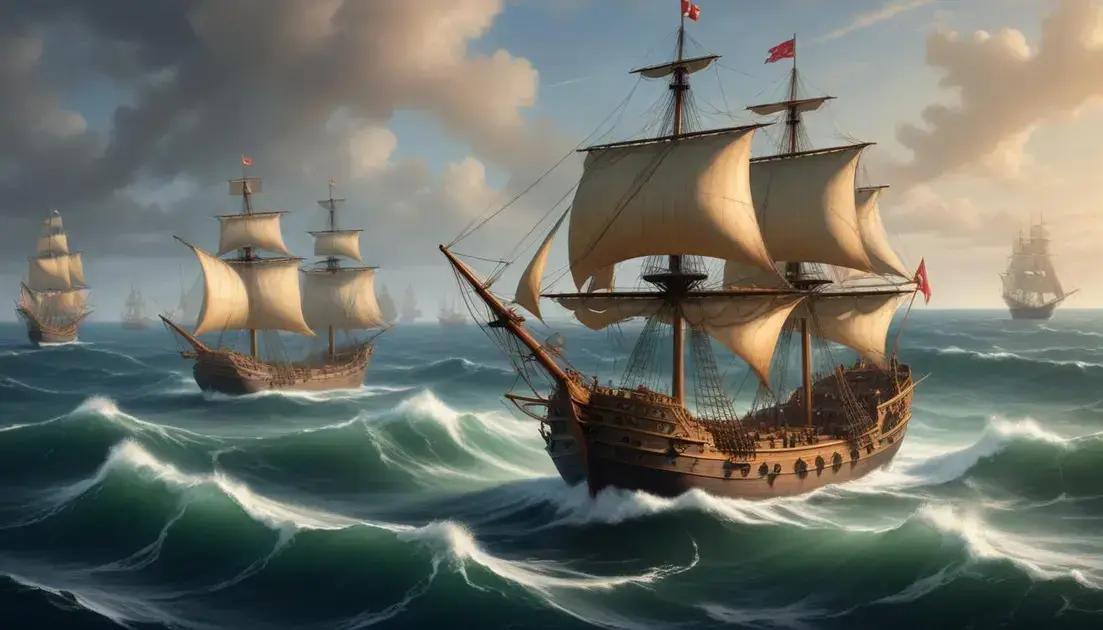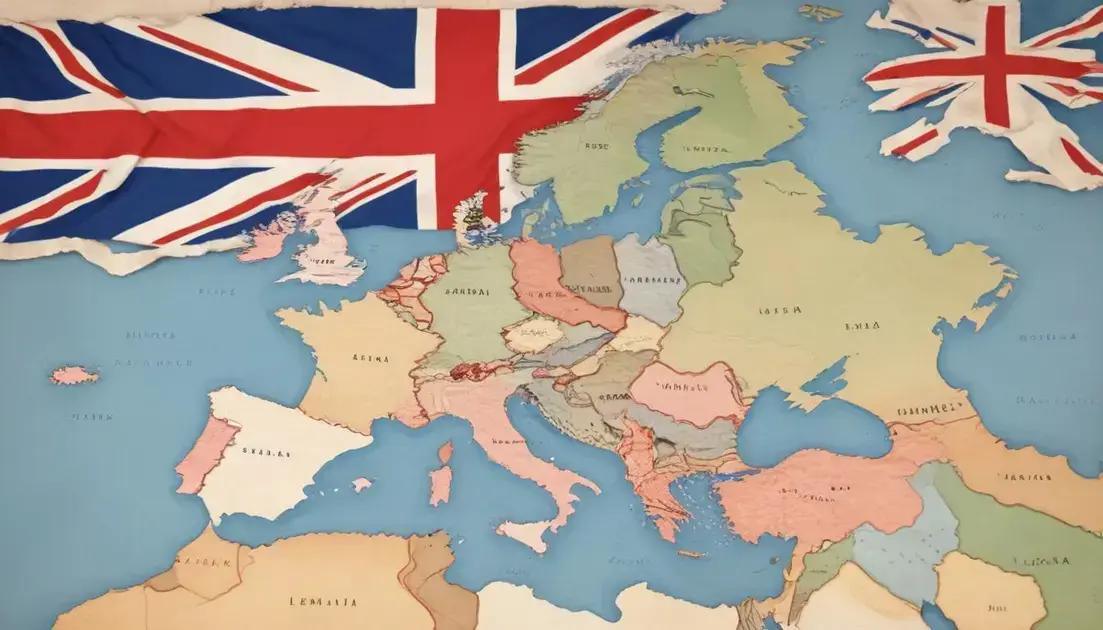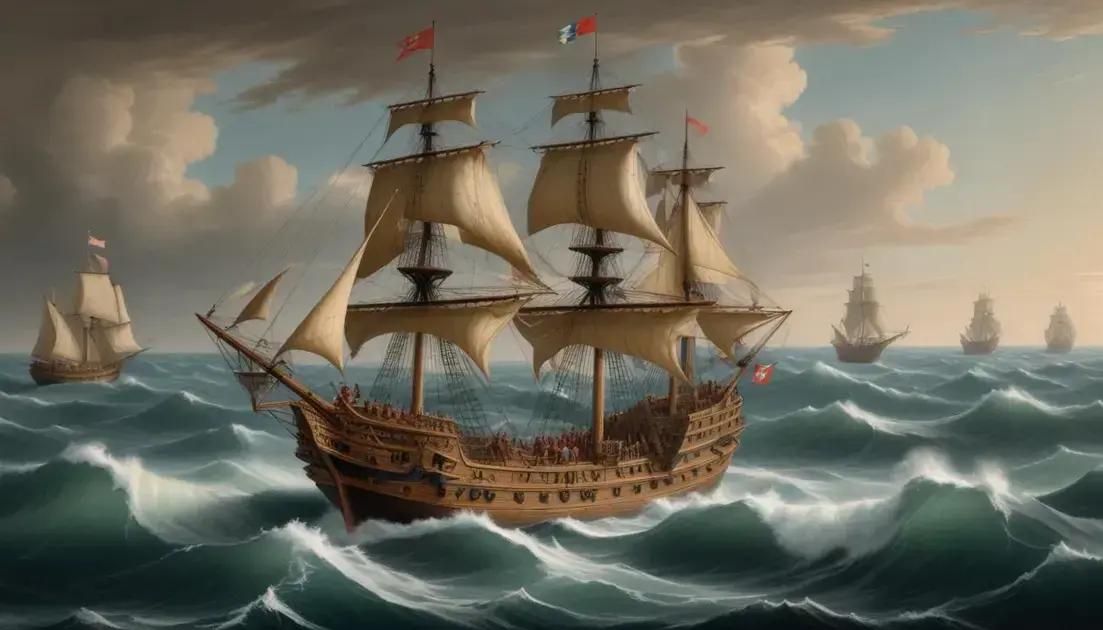
Portuguese Voyages: The Beginning of Atlantic Trade
The Portuguese explorations during the 15th and 16th centuries significantly impacted global trade by establishing new trade routes and introducing diverse goods. Key figures like Vasco da Gama and Ferdinand Magellan opened connections between Europe, Asia, and Africa, leading to economic growth and cultural exchanges. However, these voyages also initiated the transatlantic slave trade, which had profound human costs. Overall, the consequences of Atlantic trade reshaped economies and societies, illustrating the complex legacy of this era in history.
The era of Portuguese Voyages marked a transformative chapter in history… It was during this time that explorers set sail, reshaping our world.
The history of Portuguese explorations
The history of Portuguese explorations is filled with remarkable adventures and discoveries. During the 15th and 16th centuries, Portuguese explorers sailed the seas, seeking new routes and lands. They aimed to find spices and riches in Asia and Africa, forever changing trade.
Key Explorers and Their Voyages
Famous figures like Prince Henry the Navigator played a significant role. He established schools for navigation, training many sailors. Another notable explorer, Vasco da Gama, found a sea route to India. His journey opened the door for direct trade between Europe and Asia.
Impact on Global Trade
These explorations led to the creation of new trade routes across the Atlantic. The influx of goods, like spices and silks, changed European markets. The demand for these products grew, boosting economies.
Cultural Exchanges
Along with trade, Portuguese explorers led to cultural exchanges. They introduced new foods and ideas to different parts of the world. This exchange reshaped societies and influenced lifestyles across continents.
Key figures and their discoveries
When we talk about key figures in Portuguese exploration, several names stand out. These explorers made significant contributions to our understanding of geography and trade. Their journeys opened new worlds and changed history forever.
Prince Henry the Navigator
Prince Henry, known as the Navigator, is often seen as the father of exploration. He didn’t sail himself but helped others learn. He set up a school to teach navigation and cartography. This school trained many sailors who would go on to explore.
Vasco da Gama
Another crucial figure is Vasco da Gama. He sailed around Africa to reach India. His voyage was monumental as it established a direct sea route for spice trade. This helped Portuguese merchants gain a foothold in the spice-rich markets of Asia.
Ferdinand Magellan
Ferdinand Magellan is also a notable explorer. He led the first expedition to circumnavigate the globe. Although he didn’t survive the journey, his fleet continued. They proved that the world could be circled by sea, changing navigation forever.
Other Notable Explorers
There were many others, like Bartolomeu Dias and Amerigo Vespucci. They all played vital roles in expanding European knowledge of the world. Their discoveries helped map unexplored areas and linked continents through trade.
Impact on global trade routes
The impact on global trade routes from Portuguese explorations was huge. These journeys opened the door for new trade connections. Merchants now had access to exotic goods from far-off lands. Spices, silks, and other treasures flowed into Europe, changing economies.
Establishment of Trade Routes
Explorers like Vasco da Gama set sea routes that connected Europe to Asia. This made spices and luxury goods more available than ever. Countries wanted to control these routes, leading to competition and conflict.
Economic Growth
The influx of new products led to steady economic growth. Cities like Lisbon became major trade hubs. They thrived on the commerce that resulted from these sea voyages. More goods meant more jobs and wealth for many.
Cultural Exchange
As goods traveled, so did ideas and cultures. The blending of different cultures enriched societies. People were introduced to new foods, languages, and ways of life, which changed their daily routines.
Long-term Effects
The changes in trade routes laid the groundwork for globalization. New lands became connected in ways never seen before. This era marked the beginning of a world economy that still influences us today.
Cultural exchanges initiated by voyages
The cultural exchanges initiated by voyages changed societies around the world. As explorers traveled, they brought back new ideas and practices. This sharing enriched lives and cultures.
Introduction of New Foods
One significant impact was the introduction of new foods. Explorers brought spices, fruits, and vegetables from Asia and the Americas. These ingredients changed cooking and eating habits in Europe and beyond.
Sharing of Knowledge
Voyages also led to the sharing of knowledge. Different cultures exchanged information about navigation, medicine, and agriculture. This helped improve various practices and technologies across continents.
Artwork and Literature
Art and literature benefited as well. Artists began to incorporate styles and themes from different cultures into their work. This blend created unique artistic expressions that reflected global influences.
Linguistic Influence
Languages started to mix due to contact between explorers and local peoples. Words from many languages entered English and other European languages. This linguistic exchange enriched communication and cultural understanding.
The eventual consequences of Atlantic trade
The eventual consequences of Atlantic trade were far-reaching and significant. This trade transformed economies, societies, and even cultures on both sides of the Atlantic.
Economic Changes
Atlantic trade boosted European economies. Nations grew wealthy from exporting goods like sugar, tobacco, and cotton. These products became extremely valuable in Europe, leading to increased demand.
Social Impact
The trade also changed social structures. Wealthy merchants and plantation owners gained power and influence. This shift led to greater social divides between the rich and the poor.
Colonial Expansion
As trade grew, so did colonial expansion. European countries sought more land to grow cash crops. This often came at the expense of indigenous populations, disrupting their lives and cultures.
Human Cost
The human cost of Atlantic trade was immense. The transatlantic slave trade forcibly brought millions of Africans to work in harsh conditions on plantations. This created painful legacies that continue to affect societies today.
Cultural Exchange
Despite its negatives, Atlantic trade also led to cultural exchanges. Different cuisines, music, and traditions blended together. This mixing enriched cultures across the Atlantic world.
Conclusion
In summary, the impact of Portuguese explorations and Atlantic trade has shaped our world in many ways. These voyages opened new trade routes and established connections between diverse cultures. While there were significant economic benefits, the social and human costs cannot be overlooked.
As we reflect on this history, we see how it led to cultural exchanges that enriched societies. However, we must also remember the darker aspects, such as the legacy of the slave trade. Understanding this complex history helps us appreciate our interconnected world today and the lessons we can learn from it.


